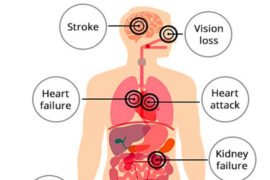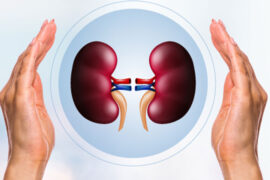The University of Michigan Health C.S. Mott Children’s Hospital National Poll on Children’s Health conducted a survey that revealed important insights into parents’ responses to poor air quality in their neighborhoods over the past two years. Two-thirds of parents reported experiencing poor or dangerous air quality, prompting various actions and concerns.
In response to poor air quality warnings, most parents took precautions such as keeping windows closed and reducing their children’s outdoor activities. However, less than half of them advised their children to avoid intense outdoor activities or use home air filters. Surprisingly, only one in nine parents had their children wear masks outdoors, and one in seven did nothing in response to the warnings.
“Our report suggests poor air quality is a common issue for families. Local news and weather reports may help parents gauge their community’s air quality, but many seem unsure about how to protect their child when air quality worsens,” stated Susan Woolford, M.D., M.P.H., paediatrician at U-M Health C.S. Mott Children’s Hospital and co-director of the Mott Poll.
“Children’s organs are still developing, making them more susceptible to health risks from exposure to polluted air caused by wildfire smoke and other pollutants,” she added. “This makes it essential to take precautions to protect their well-being when the air is unhealthy.”
Despite these responses, a significant majority of parents expressed concerns about how poor air quality might affect their children’s health. Nevertheless, fewer parents felt confident in knowing the appropriate steps to protect their children from such conditions.
Among parents who experienced poor air quality, 18 percent believed it had a negative impact on their child’s health. Most parents attributed poor air quality to wildfires, while less than half blamed excessive heat. Fewer parents considered seasonal changes like pollen, elevated ozone levels, or industrial pollution as contributing factors.
News and weather reports were the primary sources of information for more than 90 percent of parents regarding air quality problems. Alarmingly, only 21 percent of parents were aware that their child’s school had a policy outlining action steps for unhealthy air quality.
“Being outdoors is generally good for children’s physical and mental health but parents must also consider the risks of exposure to pollution,” Woolford stated.
“When air quality problems are expected to be temporary, moving activities indoors or planning outdoor events for early in the day when air quality tends to be better may be warranted to prevent high levels of exposure.”
Most parents supported mitigation measures, including moving recess and physical education indoors and canceling outdoor sports and activities when air quality is poor. Fewer parents were in favor of encouraging children to wear masks outdoors.
The findings underscore both the concerns and the lack of confidence among parents in addressing poor air quality’s potential impact on their children. The report also highlights the importance of public awareness and the potential role of policymakers in mitigating the negative effects of poor air quality on children’s health, such as implementing zoning policies to reduce traffic near schools and funding air quality improvement measures for educational and community facilities.
“Policymakers should consider the impact on babies and young children, particularly of long-term sources of pollution from sources such as factories and refineries,” Susan stated.
“If your child has preexisting respiratory conditions like asthma, consult their healthcare provider for advice on managing their condition during events that increase their risk of pollutant exposure,” Woolford stated.
“Schools play an important role in protecting children from the adverse effects of poor air quality,” Woolford stated. “We found that most parents are supportive of protective actions, such as moving recess and physical education indoors.”
Disclaimer:
The information contained in this article is for educational and informational purposes only and is not intended as a health advice. We would ask you to consult a qualified professional or medical expert to gain additional knowledge before you choose to consume any product or perform any exercise.








